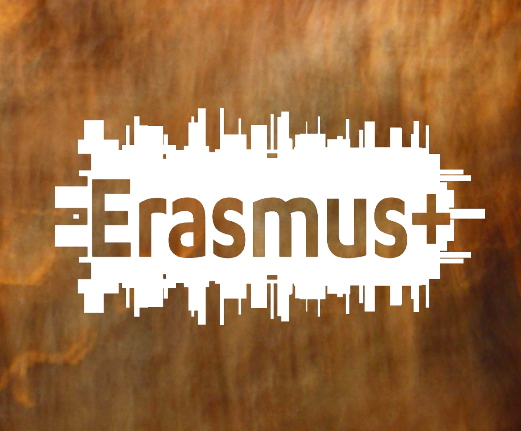Admin eu prog: orientering tips: NGOs & non-profit organizations
NGOs,
as well as all organizations of the non-profit universe can access
direct Eu funds. Those funds are managed by the various programme's
Executive Agencies or by the diverse National Agencies.
Developing a European project requires specific competences, which I identify at the following levels:
Developing a European project requires specific competences, which I identify at the following levels:
- info, meaning where to look for & find the calls, guides, tutorials & e-forms
- the structure, meaning the necessary knowledge on the Commission priorities relating to both the Eu2020 strategy & the ones identified by each programs
- the process, meaning the comprehensive skills necessary to pass through all phases of the project cycle management, including: case-study & feasibility analysis; SWOT analysis; logical framework; development of work packages & related tools (Gantt chart, Pert ...); development of a pertinent partnership; planning & administrative management; development of strategies in decision-making & communication; all reporting topics …
- the language, referring to the differences between the different partners native languages & the official project language (usually English)
In
general terms, it is basic to start by knowing a bit more in detail
the EU2020 strategy, based on:
- three priorities: to be smart, sustainable & inclusive
- three priorities: to be smart, sustainable & inclusive
-
four target areas: employment, innovation, education & social
inclusion
- five quantitative targets on employment, research & development, climate & energy, education, social integration & poverty reduction
- seven flagship initiatives: Digital agenda for Europe, Innovation Union, Youth on the move, Resource efficient Europe, industrial policy for the globalisation era, agenda for new skills and jobs, platform against poverty
- five quantitative targets on employment, research & development, climate & energy, education, social integration & poverty reduction
- seven flagship initiatives: Digital agenda for Europe, Innovation Union, Youth on the move, Resource efficient Europe, industrial policy for the globalisation era, agenda for new skills and jobs, platform against poverty
Here
you can find a general overview of the main programs.
Social
Policies.
This
is one of the main field of intervention for most of NGOs which can
develop pilot project targeted to foster local social policies with
contracts that, in some cases, can cover up to 3 years.
The main references are:
The main references are:
-
EaSI programme for change & social innovation targeting the elderly, the disabled, people experiencing poverty & social exclusion, disadvantaged minorities. The programme is divided into 3 axis:
- PROGRESS axis: occupation & social inclusion
- EURES axis: job mobility, & for youth Your First EURES Job
- For more info, see also:
education,
youth & sport
the
Erasmus
+
program covers everything about the themes of education (adult,
formal & informal, special education ...), training, youth &
sport. Priorities are set by each single call. The programme is
structured on 3 Key Actions:
- 1: mobility of individuals
- 2: cooperation for innovation & exchange of good practices
- 3: support for policy reform
For
decentralized actions, you can find your specific National
Agency here. Additional
areas of interest may include:
- minors at risk:EU Alliance for Investing in Children & unaccompained minors
- school dropouts & youth unemployment: Youth Guarantee
- awareness of young people about the Eu: Yes4Europe
Culture
& tourism
The reference programs are:
The reference programs are:
Rights,
equality & active citizenship
This is another substantial area of intervention for most NGOs on the themes of Rights, citizenship & equal opportunities for all. One program includes the previous following 3: Justice; Daphne; Progress.
This is another substantial area of intervention for most NGOs on the themes of Rights, citizenship & equal opportunities for all. One program includes the previous following 3: Justice; Daphne; Progress.
The
main references are:
- Rights, Equality & Citizenship Programme: promotion of democracy & human rights
- Europe for citizen: dedicated to active citizenship & participation
- E-twinning between schools: eTwinning
Regarding
the SIE
- Structural Investment Funds, please
note that the general regulation obliges the member states to allocate the 20% of the total funds to achieve the target goals of EU2020 strategy
concerning social inclusion. NGOs & all the non-profit
organisations are not directly eligible, but they are a major
relevance in term of addressing, lobbying & monitoring of the
proper use of such funds.
Research
& innovation
The reference program is Horizon 2020, specifically for:
The reference program is Horizon 2020, specifically for:
Another
relevant program is COSME
for the themes of fostering competitiveness, favoring access to
financing opportunities, empowerment & creation of new
entrepreneurship.
Environment
The referral program is Life2014-2020
The referral program is Life2014-2020
If
you are interested to deepen some fo these issues, if you are looking for a
specific training on eu opportunities, if you need support in designing a project under the method of Project Cycle Management, feel free to contact me
here






Comments
Post a Comment